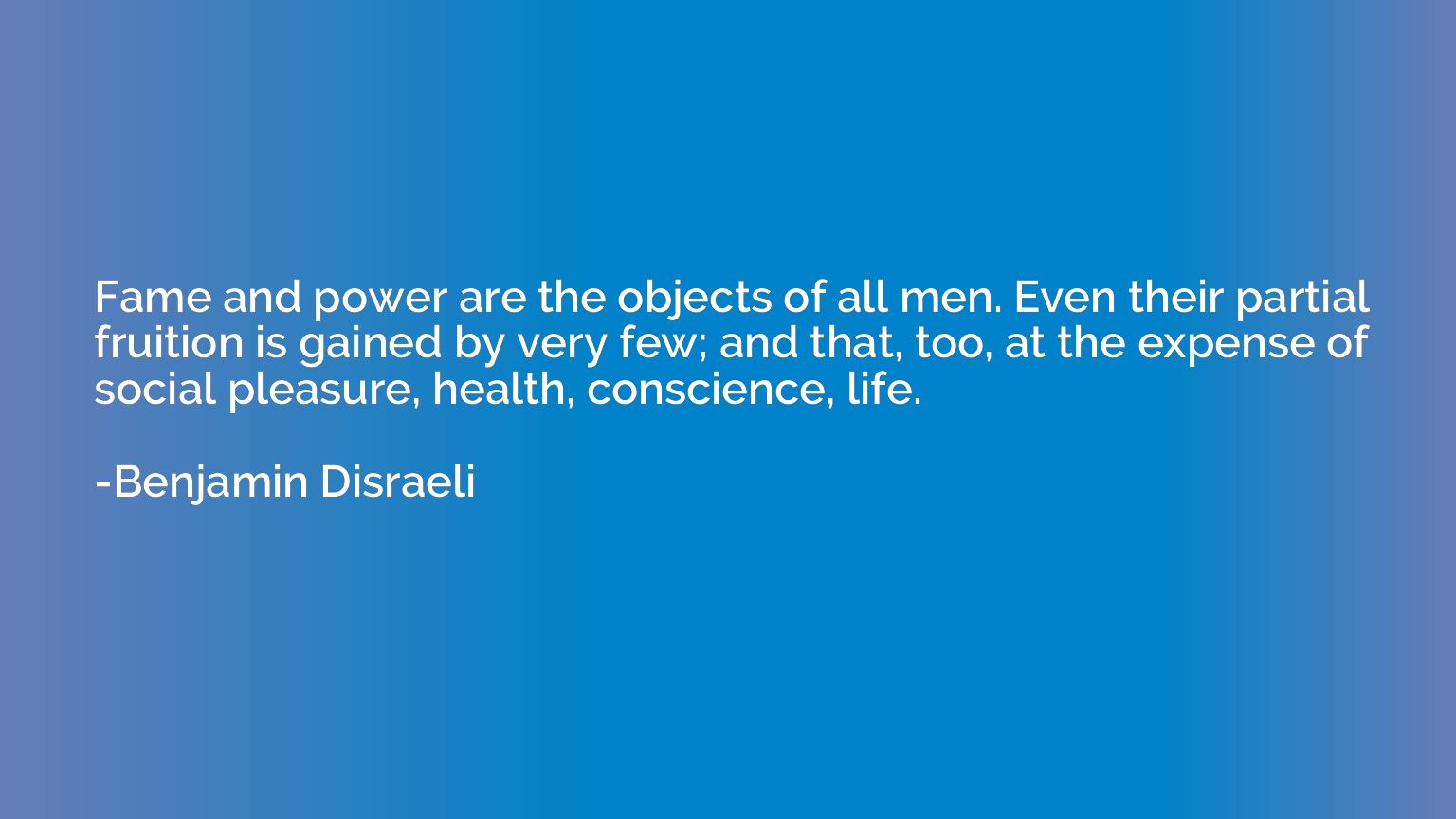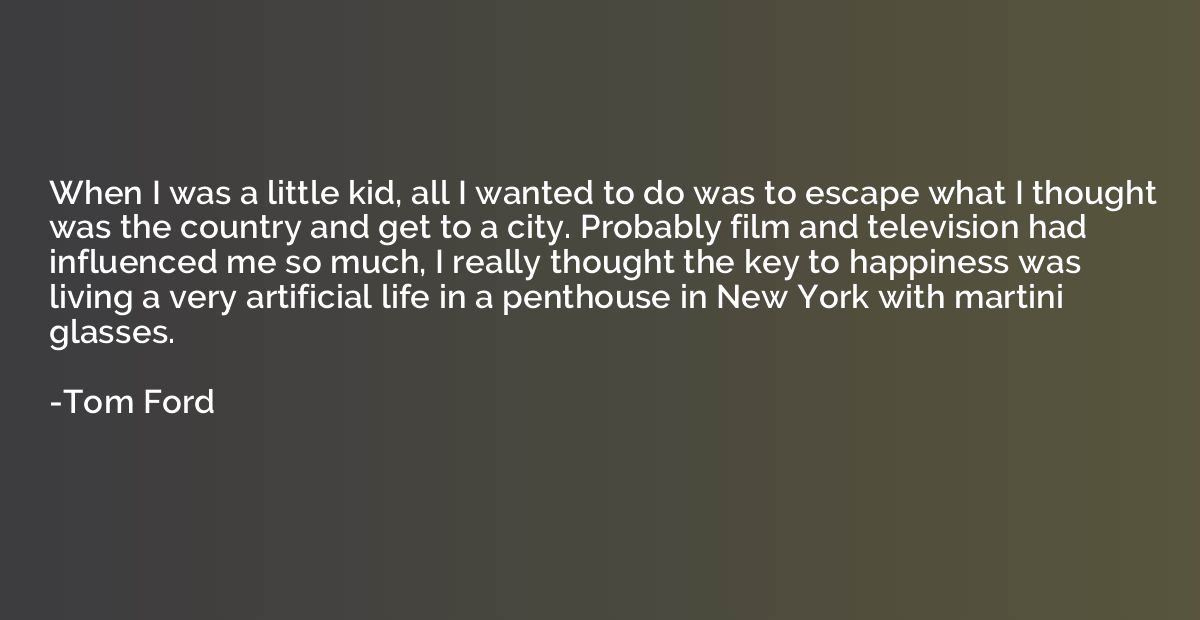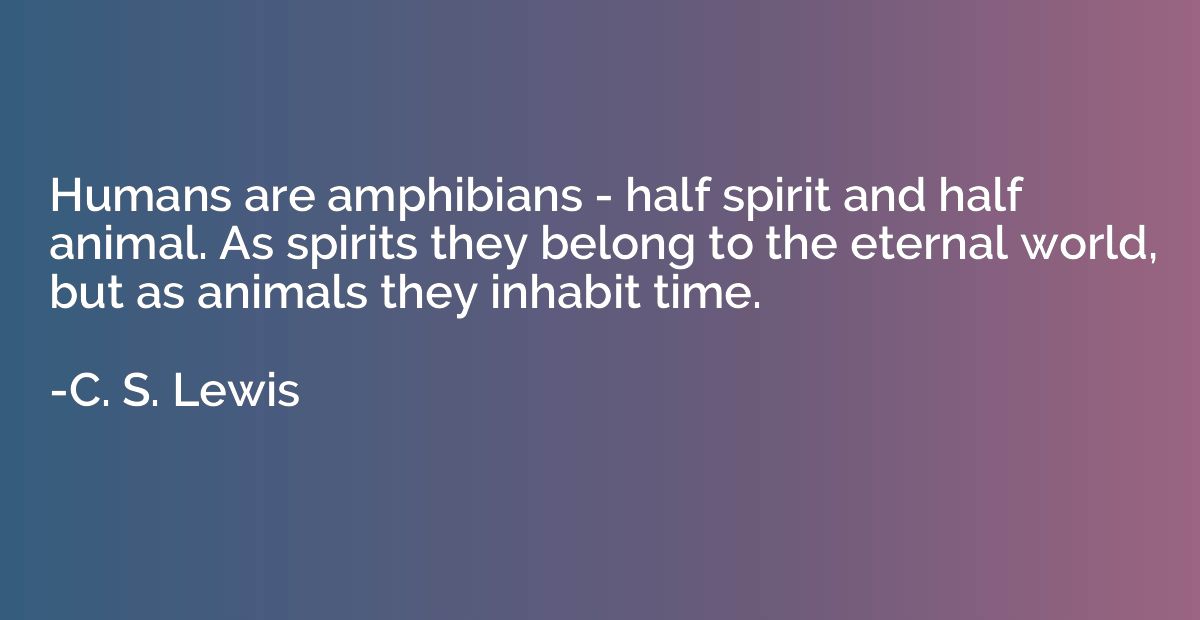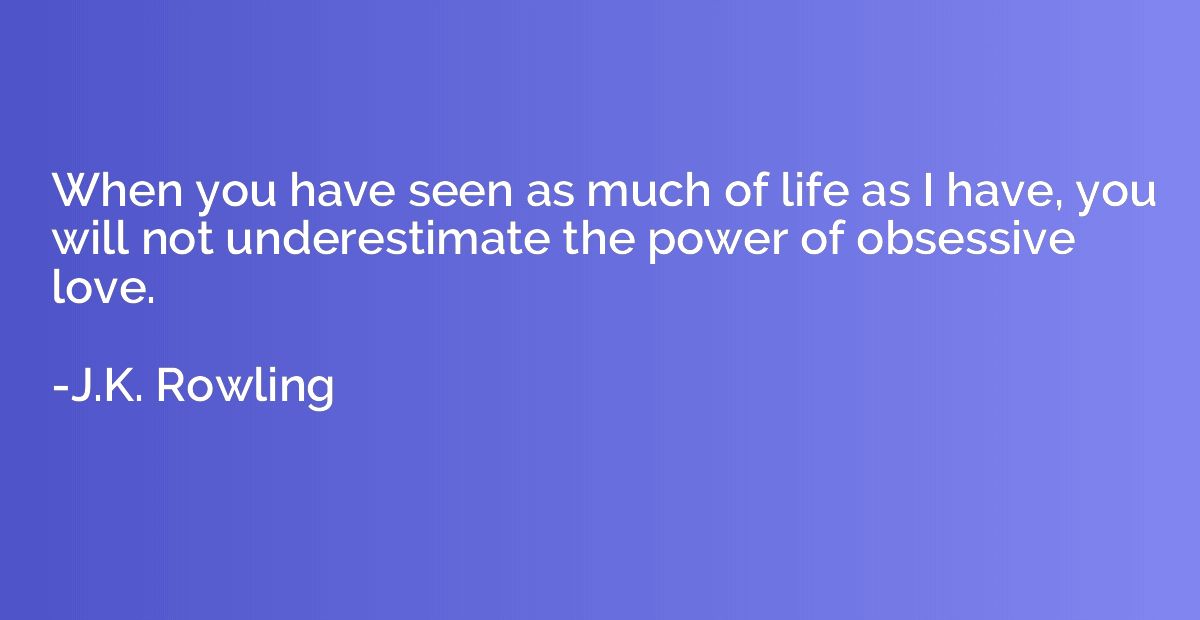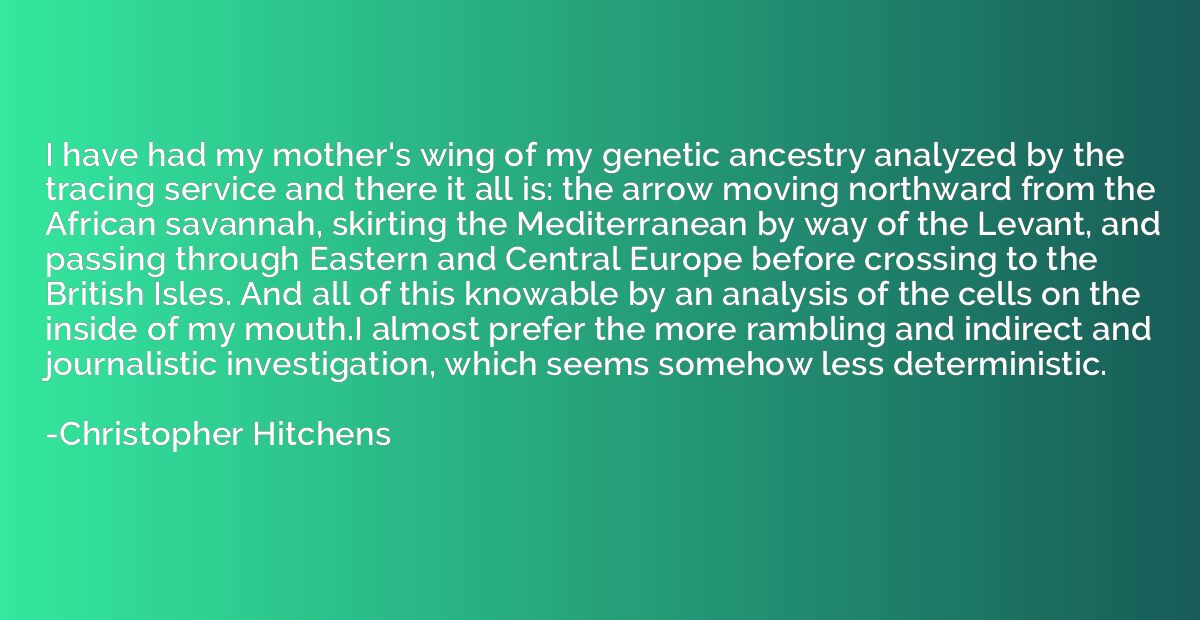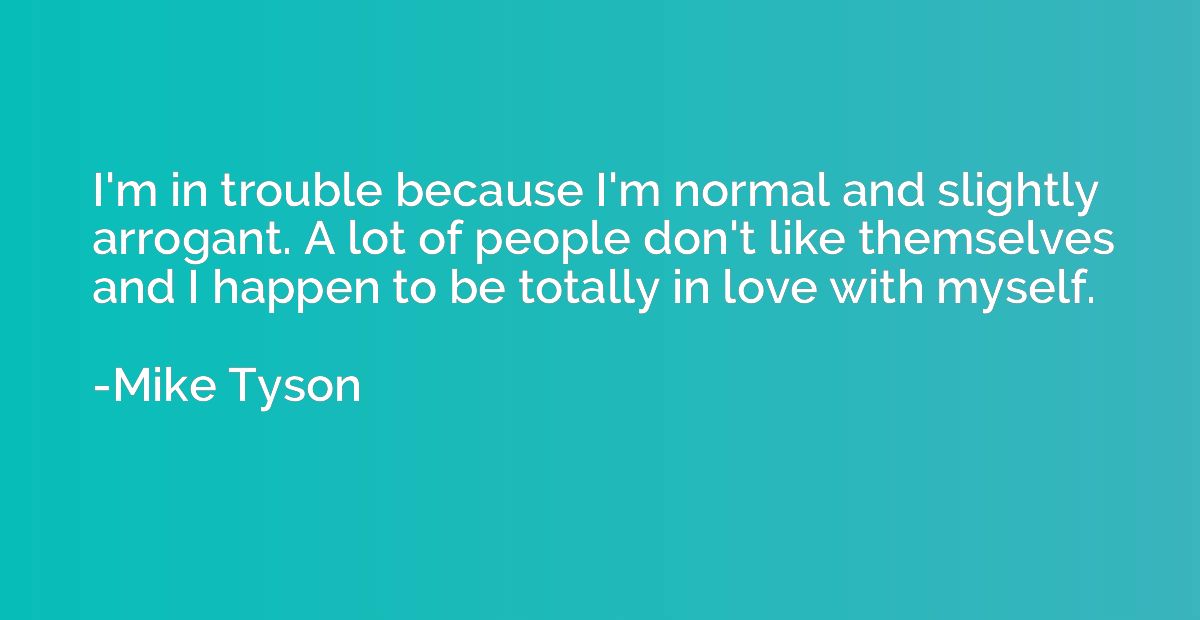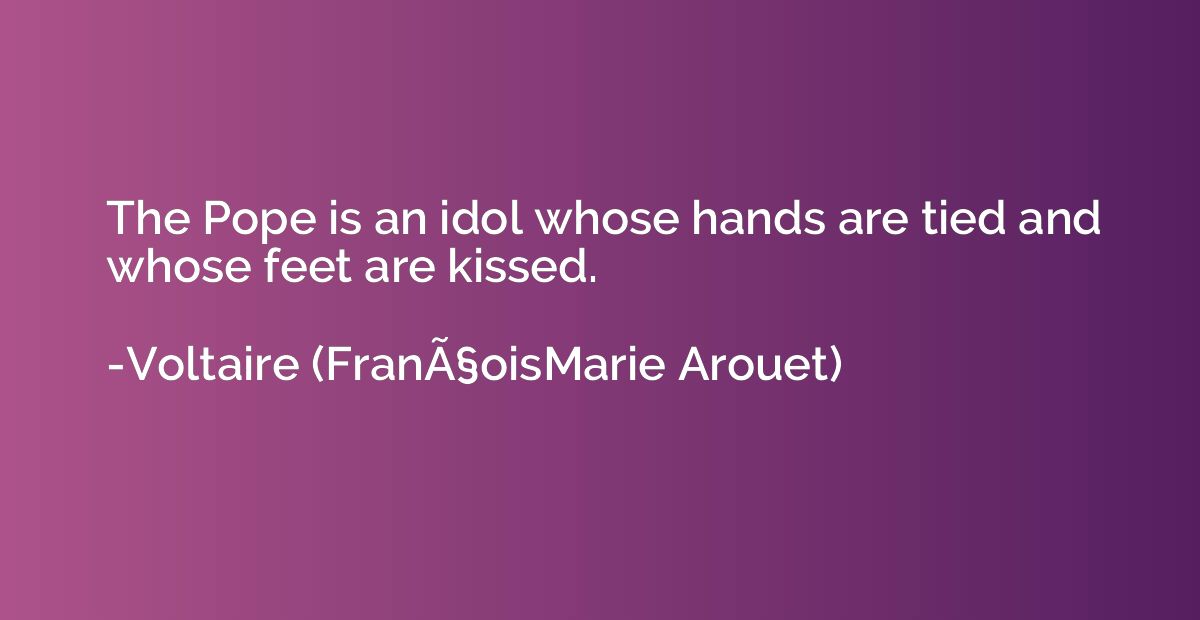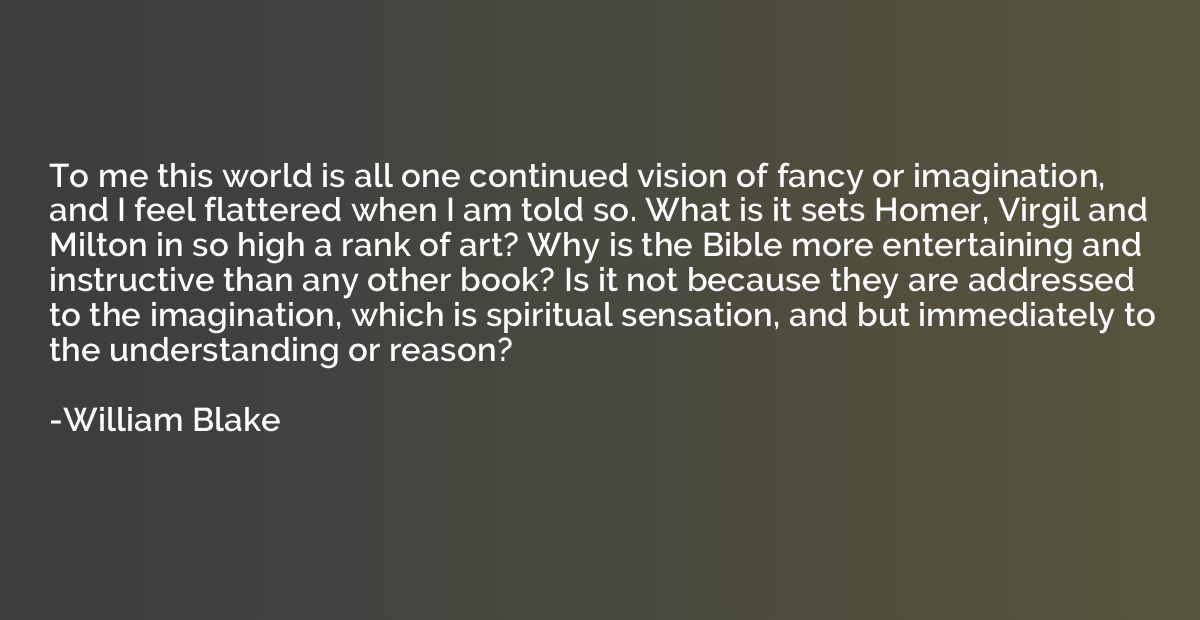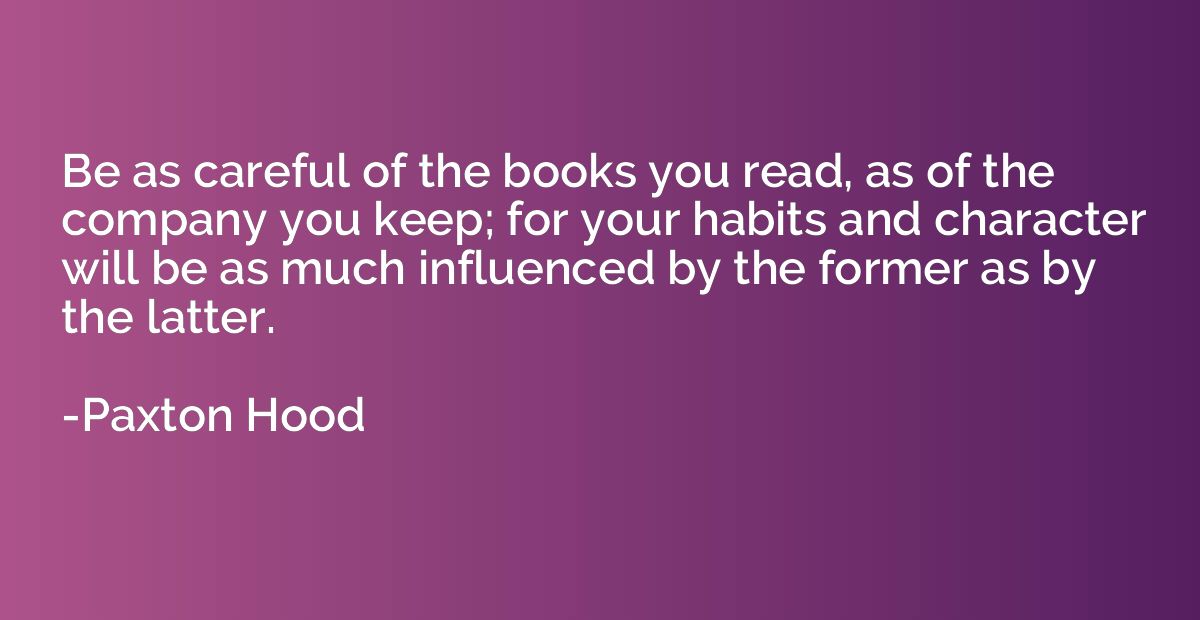Quote by Walt Whitman
The city sleeps and the country sleeps, the living sleep for their time, the dead sleep for their time, the old husband sleeps by his wife and the young husband sleeps by his wife; and these tend inward to me, and I tend outward to them, and such as it is to be of these more or less I am, and of these one and all I weave the song of myself.
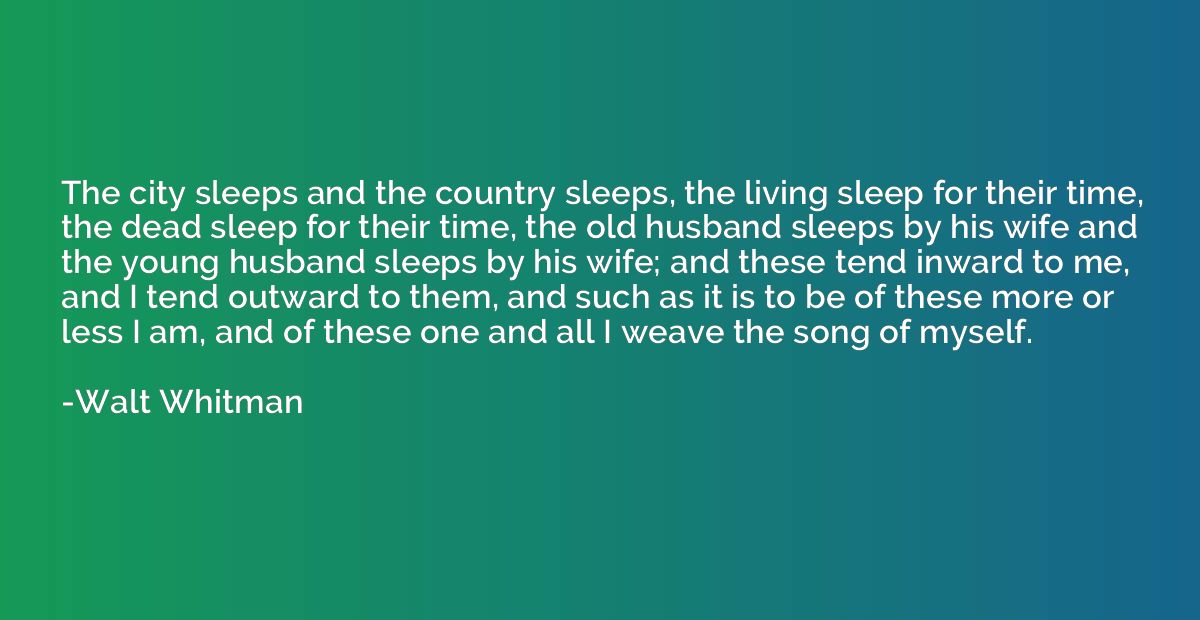
Summary
This quote, taken from Walt Whitman's "Song of Myself," encompasses the broadness and interconnectedness of human existence. It portrays the universal experience of sleep that transcends geographical and temporal boundaries. The juxtaposition between the living and the dead, and the bonds between spouses regardless of age, exemplify how individuals are part of a larger collective. Whitman highlights his own inclusiveness and identification with all these individuals, emphasizing his role as a poet who weaves the tapestry of life through his writings.
Topics
Sleep
By Walt Whitman




